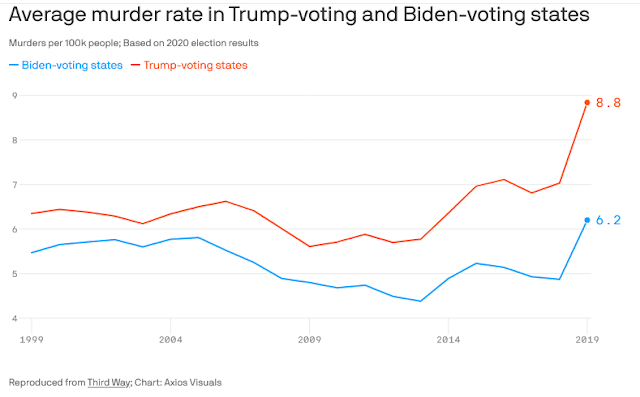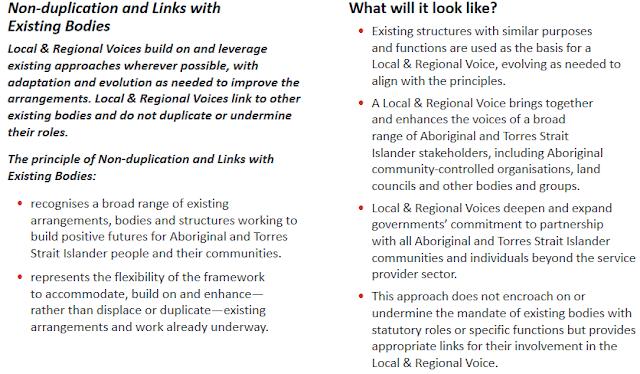Thinking about Buddhism, I don't think I have mentioned before that it seems to me it ought to have something of interest to say about the current hot button issue of trangenderism. Don't Buddhist ideas of what it is to be a person (I'm thinking in particular of the "five aggregates" which is discussed in detail in this Wikipedia entry on Skandha) suggest that it's right to be skeptical of the idea there's a gender essentialism in the mind that must be accommodated by altering the body to match it? (And, while I'm at it, it does seem to me that this aspect of Buddhist thought is one which most aligns with a lot of current theorising on the nature of mind and consciousness: a large part of why there can be a popular book from 2017 Why Buddhism is True.)
Well, I would have thought so, but just as the American version of the religion has a reputation for being all non-judgemental on sex generally (when in fact the original Buddha is supposed to have scolded a monk who had sex with his wife by saying "worthless
man, it would be better that your penis be stuck into the mouth of a
poisonous snake than into a woman’s vagina"), it would seem that American practitioners are also happy to bend over backwards to accommodate transgender individuals as needing to do whatever makes them happy:
Each of us has genitals, but they do not determine gender. Our
gender—male, female, or intersexual—includes such disparate forces as
genetics, family, and culture. The source of transgender identity is
mysterious because we don’t understand how all these forces work
together. But the incongruence you feel is not that uncommon. I would
advise only that this felt identity is not your “true self.” The
Buddhist true self is much more than our phenomenal existence. That self
is not dependent on the physical body, intellect, spiritual practice,
or relationship; it cannot be obstructed by anything phenomenal.
What you describe is what I think of as the “authentic self,” the
urge to live in this world in the most whole way possible. For some of
us, it might mean braces or a different haircut; for others, it may mean
monastic robes and a shaved head. For a certain number of people, it
will require gender-reassignment surgery. So yes, embrace your authentic
self completely. If that means you need to make some practical
adjustments, you will have plenty of company.
Colour me skeptical that this is really consistent with most of Buddhist teaching.
A more interesting take on Buddhism and transgender is to be found in this paper, which looks at the Thai "third gender" cultural belief and the contradictory response to it in Buddhism. I didn't know that old Thai Buddhism thought that both transgender and homosexual impulses were a sign of bad karma - a punishment for bad sexual conduct in a previous life:
Thailand in particular is well known for its population of transgendered people. Although they are a minority they are still recognized. A person of this minority is known as a kathoey, the Thai word for transgender. There has been a lack of official concern religiously and legally against homosexuality (Sinnott 2002). This allows the transgender population freedom to continue to grow and implies that transgenderism is seen throughout Thai history. Folklore of Thailand has been seen to involve three genders, as well as transgender shamanists (Winter, 2002). Here it is evident that transgenderism has always played a role in Thai culture, that it is not something new and depending on the role of the transgender in stories it is nothing to be ashamed of either. Thus, it is evident that transgender tales extend beyond the medical and religious realms into historical folklore that helps shape Thai culture.
Not all historical tales of transgenderism are so positive in Thai society, for the third gender is seen as a karmic consequence. Traditional accounts of Thai Buddhism propose that homosexuality and transgenderism are to be viewed as a result of a negative previous life full of acts of sexual misconduct (Jackson 1993). The karmic build-up from the previous life has resulted in the punishment of being a social outcast as a transgender in a new life, but there are implications suggesting that we may all have been a kathoey at one point. No one knows for sure because no one knows all their past and future lives, only that if they are still living they are stuck in the cycle of samsara. Despite being a kathoey as a result of bad karma, some kathoey’s use the Buddhist teachings of karma to explain their identity and so it allows them to lead a life where wanting to change sexes is not seen as sinful nor does it affect their future lives (Winter 2002). Therefore, if being a kathoey is not seen as sinful and a result of bad karma and it is possible that everyone has been a kathoey in their past life; it brings forth the chance for kathoey’s to become accepted by religious laws and shape future history.
The acceptance of kathoey’s in society by non-homosexuals teaches a lesson of compassion. The kathoey may not be able to change their fate but for Buddhists to act compassionate to the kathoey is to recognize them as a fellow human trapped in the cycle of rebirth. Due to mixed understandings of transgendered beings in Buddhist traditions it is difficult to understand how to act towards them. For instance, the Vinaya does not contain explicit rules or understandings of a third gendered being, nor are Theravada Buddhist scriptures consistent in their judgements of the third gendered being within the sangha (Jackson 1993).
Anyway, more generally, there is the question of what Buddhist influenced psychotherapy would be like. I presume it has had some influence on the field, and Googling the topic, I see that indeed it has, although it would seem it's not all that well researched an area.
But, by happy coincidence, there is a recent New York Times review of a book which is right on this topic - The Zen of Therapy by Buddhist psychotherapist Mark Epstein. The review is headed: What Unites Buddhism and Psychotherapy? One Therapist Has the Answer. (It's a gift link so you can read the whole thing.)
It starts:
Despite often being lumped together these
days in what gratingly gets called the “wellness sector,” psychotherapy
and Buddhist meditation might be seen as almost opposite approaches to
the search for peace of mind. Show up on the couch of a traditional
American shrink, and you’ll be encouraged to delve deep into your
personal history and emotional life — to ask how your parents’ anxieties
imprinted themselves on your childhood, say, or why the way your spouse
loads the dishwasher makes you so disproportionately angry. Show up at a
meditation center, by contrast, and you’ll be encouraged to see all
those thoughts and emotions as mere passing emotional weather, and the
self to which they’re happening as an illusion.
These
differences also help explain the characteristic ways in which each
approach goes wrong — as in the case of the lifelong therapy patient
who’s fascinated by his own problems, yet still as neurotic as ever; or
the moony meditator engaged in what’s been termed “spiritual bypassing,”
attempting to transcend all earthly concerns so that she needn’t look
too closely at her own pain.
Sounds about right.
(Epstein, by the way, looks pretty much as you would expect if David Byrne were a psychotherapist).
Anyway, Epstein seems to endorse a feeling I always have about religion that involves abandoning family:
Epstein, whose earlier books on related themes include “Advice Not
Given” and “Thoughts Without a Thinker,” is adamant that psychotherapy
is right to emphasize the importance of our personal stories — the
history and texture of what it feels like to be, uniquely, ourselves —
as against the meditator’s tendency to disdain the realm of emotions,
seeing them “as indulgent at best and as an impediment at worst.” It’s
clear from early in the book that Epstein won’t be romanticizing the
ascetic life when he describes a pivotal moment in the story of the
historical Buddha, in which he walked out on his wife and child to seek
spiritual enlightenment, not as an act of courage, but as a rather
obvious case of emotional avoidance.
OK. And the key idea is in these two paragraphs:
Buddhism’s critical insight, though, is that those personal stories are just
stories, as opposed to nonnegotiable, objective reality; that the
selves to which they occur are much less substantial than we tend to
assume — and that freedom lies ultimately not in understanding what
happened to us, but in loosening our grip on it all, so that “things
that feel fixed, set, permanent and unchanging” can start to shift. The
goal, in a refreshing counterpoint to the excesses of a certain way of
thinking about therapy, isn’t to reach the state of feeling glowingly
positive about yourself and your life. It’s to become less entangled
with that whole question, so that you get to spend your time on more
meaningful things instead....
The mantra of the Buddhism-inclined therapist, he writes, is to “find the clinging” — to detect where a patient is holding tightly to certain stories or feelings on which they’ve come to believe their happiness depends (or, alternatively, those they seek at all costs to keep at bay — since aversion, for a Buddhist, is just an inverted kind of clinging). The point isn’t to stop feeling or thinking them, but to change one’s relationship to them. The “ultimate Buddhist therapeutic maneuver,” he explains, is “not to ignore the emotion but to leave it alone, allowing it to appear in its own way, appreciating it for what it seems to be without getting taken in by it.” Talking with one patient, a stepmother bitter about her stepchildren’s lack of appreciation, he makes the fine distinction that her expectations are “valid” but “not realistic.” It’s perfectly OK to have expectations; just don’t make your happiness dependent on their ever being fulfilled.
Going back to the original point: it seems to me that Buddhist inspired psychotherapy should lean towards helping people let go of clinging to the idea that body modification is key to their happiness. Perhaps some will say "so, are you going to argue they should also tell people to just ignore same sex attraction?" But I don't think the comparison is the same. Sex and the intimacy it brings is something nearly everyone desires, and some find they can only achieve it by being with a same sex partner. Body dysmorphia - which is at the heart of transgenderism - is different, and being able to overcome it doesn't mean that there should be any effect on fulfilment in terms of sexual enjoyment and personal intimacy.
That how it seems to me, anyway...






%20_%20Twitter.png)







%20_%20Twitter.png)

%20_%20Twitter.png)
%20_%20Twitter.png)
%20_%20Twitter.png)
%20_%20Twitter.png)
%20_%20Twitter.png)
%20_%20Twitter.png)
%20_%20Twitter.png)
%20_%20Twitter.png)